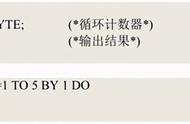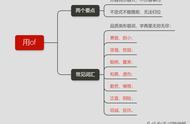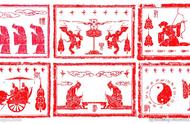for这个单词也是一个使用频率极其高的介词,很简单却也很复杂,在牛津词典中就足足有20种意义,让人光是看到就觉得头皮发麻,更别说去学了,所以通常都是学了个大概就置之不理了。
然而万丈高楼平地起,对于一门语言来说,掌握简单的词往往比掌握复杂的词更加重要,因为简单的词使用频率非常的高,而且意思多变,使用起来很灵活。
言归正传,还是回到for这个单词,依然是我们熟悉的两步走,首先找到for这个单词最本质的含义,是什么呢?答案就是“引出某一个对象”。看到这儿可能有些同学会觉得答非所问,老师我们明明问你for的本质含义是什么,你怎么给我们一个这种东西啊?同学们别急,且跟着我一起往下走,进入第二步,结合语境逐个分析、理解for的20种意义,你会发现,管它七十二般变化,for所有的意思都与这个“引出某一个对象”分不开。
1、There's a letter for you;It's a book for children;We got a new table for the dining room. 这时for表示“给,对,供”,我们不要记这个,太不明确了,根据for的本质含义,我们认为此处的for为引出“物品供给的对象”,注意了,对象不一定是人,也可是某件事、。
2、What can I do for you;I took her classes for her while she was sick. 这里for表示“以帮助;为了”,我们不要这个,而是认为是引出“需要帮助的对象”。
3、They are anxious for her safety;Fortunately for us, the weather changed. “关于”,我们记为此处for为引出“关于的对象”
4、I am speaking for everyone in this department. “代表”,我们记为引出“代表的对象”。
5、She's working for IBM. “受雇于”,我们记为引出“打工的对象”,或者有些小伙伴调侃为“卖身的对象”也行。
6、Shaking your head for ‘No’ is not universal. “意思是”,我们记为引出“一个动作所表示的含义”,此时含义就是对象。
7、Are you for or against the proposal?They voted for independence in a referendum;There's a strong case for postponing the exam. 此处for译为“支持;拥护”,我们记为引出“赞成的对象”。谁赞成?谁反对?

8、a machine for slicing bread;Let's go for a walk.Are you learning English for pleasure or for your work?What did you do that for?此时for译为“表示目的、功能”,我们记为引出“一个目的或功能”,此时目的和功能就是对象。
9、The town is famous for its cathedral;He got an award for bravery. “由于;因为”,我们记为引出“一个原因”,此时原因就是对象。
10、He came to me for advice;For more information, call this number. “为得到;为获取”,我们记为引出“想得到的对象”。
11、Copies are available for two dollars each.I'll swap these two bottles for that one. “换取”,我们记为引出“要换取的东西”,不管是物换钱,还是钱换物,都一样。
12、She's tall for her age;That's too much responsibility for a child. “就......而言”,我们记为引出“一个衡量的立场或角度”,
13、You'll feel better for a good night's sleep.This room would look more cheerful for a spot of paint.我们记为引出“一个建议”,此时这个建议就是对象。
14、Is this the bus for Chicago?She knew she was destined for a great future.“往,向”,我们记为引出“一个去往的对象”,可以是具体的某个地方,也可以是抽象的未来、梦想、目标等等。
15、I'm going away for a few days.“表示一段时间”,我们记为引出“一段时间”。
16、We're invited for 7.30;an appointment for May 12,“(安排或预定)在…时”,我们记为引出“一个指定的时间点”。
17、He asked his daughter what she would like for her birthday. “表示场合”,我们记为引出“一个特殊的场合”,这种通常很容易看出来。
18、The road went on for miles and miles. “表示距离”,我们记为引出“一段延伸的距离”。
19、It's useless for us to continue;There's no need for you to go;For her to have survived such an ordeal was remarkable;The box is too heavy for me to lift. 此时for译为“对(某人)来说(困难、必需、愉快等)”,我们记为引出“被评估的人”,此处对象只能是人。
20、How to spend the money is for you to decide;It's not for me to say why he left. “表示谁可以或应该做某事”,记为引出“一个应当做某事的人”。
可能有些同学看下来之后,脑子里只剩“对象”两个字了,感觉看了,又感觉没看。我告诉大家,只记得“对象”那就对了,其实这个时候,你已经进入了张三丰那种无招胜有招的境界了,不需要死记硬背for的这20种意思,你只需要记住它在引出对象就足够了,四两拨千斤。建议大家最好睡前多看几遍,仔细体会,相信你的英语水平会更上一层楼。
,













